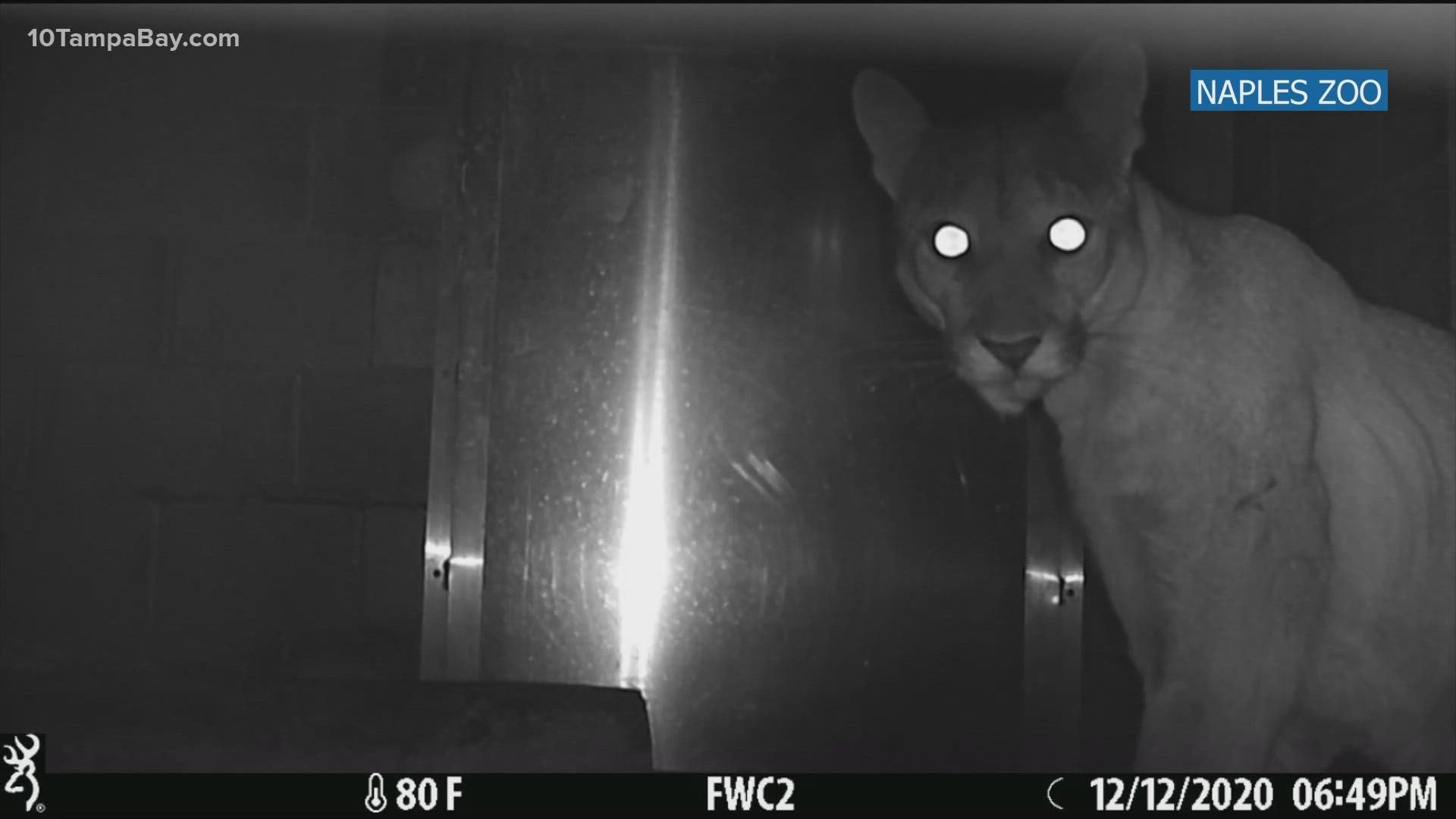IMMOKALEE, Fla. — Federal officials are pushing back against a recent commentary in the nonprofit Florida Phoenix, which had indicated the same agency tasked with protecting the state's panthers was now considering killing one.
Florida is home to two native cat species, bobcats and panthers. In the 1970s, Florida panthers almost went extinct. At the time, there were only 20-30 left in the wild, according to the Naples Zoo.
Today, the state estimates there are 120-230 adult Florida panthers roaming around. They remain an endangered species. Most live south of Lake Okeechobee, but they've been seen as far north as Georgia.
There's one panther, in particular, that has drawn the attention of social media users and state regulators. It's called FP260.
A little more than a year ago, the panther was hit by a car. FP260 was treated at the Naples Zoo and then released back into the wild.
Since then, an Immokalee rancher – who also happens to be a former state wildlife official – has complained about FP260 killing her calves. As the Florida Phoenix explains, biologists tried relocating FP260 about 18 miles away. But the big cat returned.
Now, they're looking for a more permanent fix.
While there's never been a documented Florida panther attack on a human, the Phoenix reports the rancher told the feds she was worried FP260 might target a person and represent a threat to public safety. The publication says it has reviewed emails that reveal the federal government subsequently determined FP260 should be permanently removed from the wild; and if a zoo won't take the animal, the panther will reportedly be euthanized.
The government, however, is taking issue with the Phoenix's characterization that FP260 is "marked for death." The South Florida office of the U.S. Fish & Wildlife Service says there's no plan to kill FP260.
"FP260 is not marked for death," it wrote in a statement on Facebook, explaining the plan is instead to bring the panther to a zoo or animal sanctuary of some sort.
On Feb. 18, the USFWS Southeast Region echoed USFWS South Florida's remarks that the hope is to remove the panther from the wild – but not to kill him.
"There are no plans to kill FP260," the Southeast Region wrote. "It is the goal of the U.S. Fish and Wildlife Service and our partners to avoid any such scenario."
U.S. Fish & Wildlife maintains that government code gives it authority to take action in this case.
"Due to the number and frequency of livestock depredations and concerns for human safety, the Service determined that FP260 be removed from the wild under 50 CFR 17.21(c)(3)(iv) which provides for removing animals that constitute a demonstrable but non-immediate threat to human safety," USFWS South Florida explained on Facebook.
The federal Facebook page did not reply to a comment from the Phoenix commentary's author, who had asked USFWS South Florida to explain exactly "how FP 260 is a threat to human safety."
Other commenters agreed, acknowledging they understood the threat to cows but questioning the "threat" to people. While that part continues to divide social media, the government's plan to capture FP260 appears to be moving forward.
U.S. Fish & Wildlife says FP260 is "a suitable candidate for permanent captivity," and efforts are underway to find a facility where the panther can live. The feds say they will keep working with the Florida Fish and Wildlife Conservation Commission to find a permanent home for him.
You can read the revised Florida Phoenix commentary at this link.

